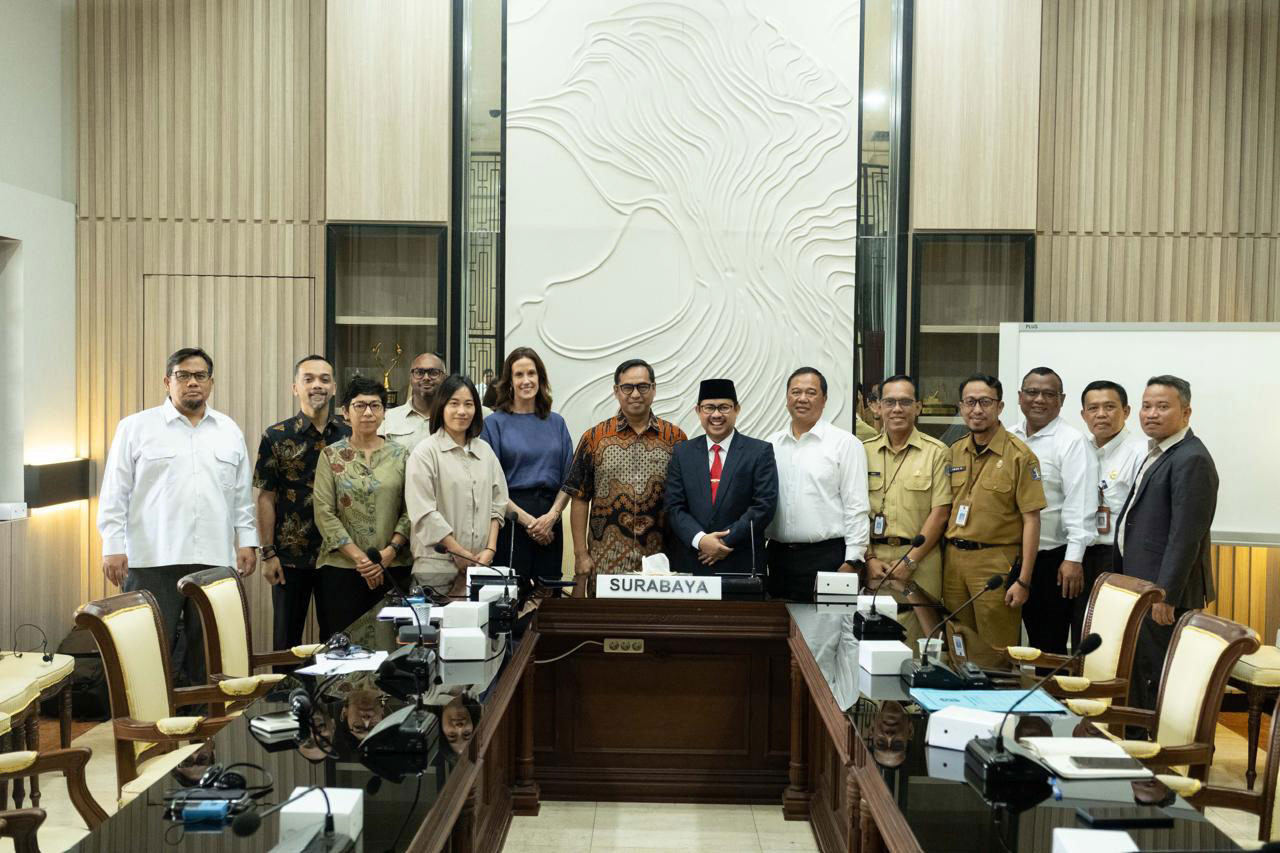Popular Reads
Top Results
Can't find what you're looking for?
View all search resultsPopular Reads
Top Results
Can't find what you're looking for?
View all search resultsIndonesia-UAE partnership supports efforts to address plastic river waste in Surabaya
Change text size
Gift Premium Articles
to Anyone
R
iver pollution remains one of Indonesia’s most pressing environmental issues, posing a persistent challenge to keeping marine waters free from plastic waste.
To address this, a joint project between the government of Indonesia and the United Arab Emirates is currently underway, aiming to tackle riverine plastic pollution and prevent further leakage into the country’s marine ecosystems. This initiative highlights the importance of multi-stakeholder collaboration.
Surabaya, in East Java, has been selected as the pilot site for the project. The first phase of the initiative, focused on reducing plastic waste entering Indonesia’s marine waters, will be implemented by the United Nations Development Programme (UNDP) Indonesia in collaboration with Clean Rivers Ltd., an Abu Dhabi-based organization.
Scheduled to run for three years starting in early 2025, the program aims to enhance coordination among government institutions, civil society organizations and local communities to collectively address riverine plastic waste.
On May 20, a delegation led by Rofi Alhanif, assistant deputy for circular economy and environmental impact at the Office of the Coordinating Minister of Food, visited Surabaya. The group met with the Surabaya city administration and conducted a site inspection at the designated project location along the Kali Tebu River.
Surabaya’s regional secretary, Ikhsan, expressed appreciation for the partnership and its role in addressing the city’s urgent waste issues.
“Managing waste along the Kali Tebu River is critical to prevent it from reaching marine areas. With equipment already installed along the river and active involvement from the local community, this collaborative effort will significantly improve waste handling in the area,” Ikhsan said.
Urban river pollution and waste management remain prominent concerns, especially in Indonesia's major cities. Challenges such as unclear authority over river management, illegal structures contributing to pollution and daily leakage of untreated waste persist.
“This program is one of several collaborative efforts we are pursuing to address waste issues, including initiatives focused on the circular economy and community-based waste management,” said Rofi Alhanif.
Deborah Backus, CEO of Clean Rivers Ltd., added: “The implementation of this partnership in Surabaya reflects our commitment, backed by financial support from the UAE government, to collaborate with the Surabaya city administration in transforming river waste management. This effort emphasizes inter-agency cooperation and active community engagement.”
The Surabaya city administration currently has a waste treatment capacity of 1,530 tonnes per day at the Benowo landfill. However, with daily waste generation reaching 1,810 tonnes, approximately 300 tonnes remain untreated, highlighting the need for grassroots and community-based waste management initiatives.
During the visit, representatives from Clean Rivers, the UNDP and the Secretariat of the National Coordination Team for Marine Debris Management (TKN PSL) visited GRADASI, a local waste charity group in Balas Klumprik sub-district. GRADASI demonstrates a successful model of community-driven waste solutions.
The community collects inorganic waste through a local waste bank and runs a donation-based system for waste collection. Organic waste is processed into animal feed, while additional efforts such as mangrove planting and urban farming contribute to environmental and food security.
The success of the initiative illustrates that riverine plastic waste can be tackled through strong collaboration among governments, development partners and communities. This kind of initiative serves as an inspiring model for other regions.
With a spirit of collective action and cross-sectoral support, Indonesia can move toward cleaner rivers, healthier communities and a more sustainable future.










